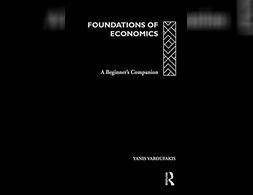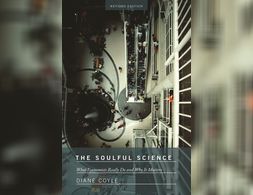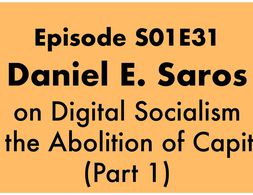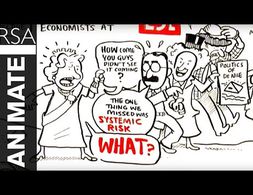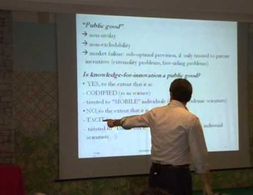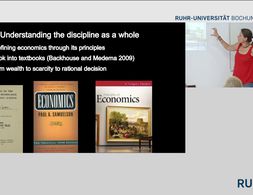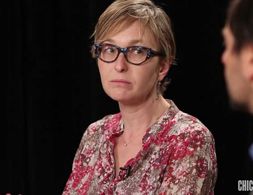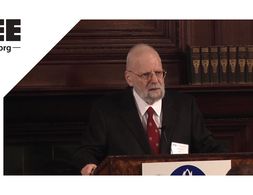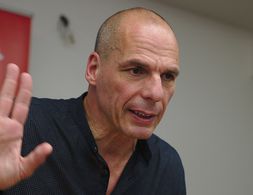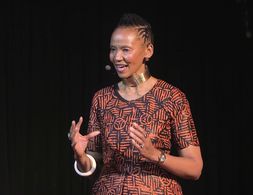✕
1198 results
Foundations of Economics breathes life into the discipline by linking key economic concepts with wider debates and issues. By bringing to light delightful mind-teasers, philosophical questions and intriguing politics in mainstream economics, it promises to enliven an otherwise dry course whilst inspiring students to do well.
Lean Logic is the late David Fleming’s masterpiece, the product of more than thirty years’ work and a testament to the creative brilliance of one of Britain’s most important intellectuals. A dictionary unlike any other, it leads readers through Fleming’s stimulating exploration of fields as diverse as culture, history, science, art, logic, ethics, myth, economics, and anthropology, being made up of four hundred and four engaging essay-entries covering topics such as Boredom, Community, Debt, Growth, Harmless Lunatics, Land, Lean Thinking, Nanotechnology, Play, Religion, Spirit, Trust, and Utopia. The threads running through every entry are Fleming’s deft and original analysis of how our present market-based economy is destroying the very foundations—ecological, economic, and cultural— on which it depends, and his core focus: a compelling, grounded vision for a cohesive society that might weather the consequences
"Stabilise, liberalise and privatise" has, since the debt crisis of the early 1980s, been the mantra chanted at developing countries by international financial institutions, donor countries and newspaper columnists with quasi-religious conviction.
Surviving the Future is a story drawn from the fertile ground of the late David Fleming's extraordinary 'Lean Logic: A Dictionary for the Future and How to Survive It'. That hardback consists of four hundred and four interlinked dictionary entries, inviting readers to choose their own path through its radical vision. Recognizing that Lean Logic's sheer size and unusual structure can be daunting, Fleming's long-time collaborator Shaun Chamberlin has selected and edited one of these potential narratives to create Surviving the Future. The content, rare insights, and uniquely enjoyable writing style remain Fleming's, but are presented here at a more accessible paperback-length and in conventional read-it-front-to-back format
The 2007-2010 economic crisis has profoundly shaken the foundations of mainstream financial economics. The apparent falsification of core concepts such as risk diversification, informational efficiency and valuation efficiency by an unexpected course of events has revealed the need to redefine the objectives and direction of research today.
Jo Michell discusses some key implications of climate change regarding the standard policy prescriptions of Post-Keynesian economics, particularly relating to the possible necessity of consumption constraints and the presence of recurrent inflation.
For many, Thomas Carlyle's put-down of economics as "the dismal science" rings true--especially in the aftermath of the crash of 2008. But Diane Coyle argues that economics today is more soulful than dismal, a more practical and human science than ever before. The Soulful Science describes the remarkable creative renaissance in economics, how economic thinking is being applied to the paradoxes of everyday life.
The world is still feeling reverberations from the financial crisis of 2008 foreseen by neither politicians nor economists The history of capitalism has been punctuated by major crises exposing the fragility of our entire economic system How has capitalism despite these ruptures managed to each time resurface more resilient and …
Some economic events are so major and unsettling that they “change everything.” Such is the case with the financial crisis that started in the summer of 2007 and is still a drag on the world economy. Yet enough time has now elapsed for economists to consider questions that run deeper than the usual focus on the immediate causes and consequences of the crisis.
This is an introductory course into economics that navigates the intellectual history of political economy in a self-contained and non-technical manner. The course centres on the classical concept of political economy by emphasizing the moral and ethical problems that markets solve or may not solve.
While many are unsatisfied with capitalism and critique it in highly sophisticated ways, there are few concrete proposals for a socialist mode of production that could replace the capitalist one. Daniel E. Saros has developed such a proposal in his book "Information Technology and Socialist Construction – The End of Capital and the Transition to Socialism" which we discuss at length over the course of two episodes.
Ernest Mandel, a heterodox Marxist economist, shows here how a political economist can analyse systems such as the Soviet Union.
The economics of worker cooperatives is a branch of economic inquiry with a long and esteemed pedigree, dating at least from the work of John Stuart Mill in the mid-nineteenth century.
In this book, the authors, Cinzia Aruzza, Tithi Bhattcahrya, and Nancy Fraser, move away from the myopic view of feminism for a select few to focus on a universal idea of feminism.
In this book, Blakely tells us a story of the class nature of capitalism, in which she centers the role of the financial sector and its rapid growth.
David Harvey illustrates the five most common narratives on why the financial and economic crisis took place – from human frailty to policy failure.
The Lecturer Prof. Francesco Lissoni presents basic concepts of the Economics of Innovation. Firstly, he distinguishes between invention, innovation and diffusion and relates innovation to economic growth. Subsequently, he elucidates learning and network effects.
In this lecture, Beatrice Cherrier explains why it is worth to research the history of JEL codes. The changing relationship between theory and application and the rise and death of new economic topics in the XXth century through the successive revisions of the classification system economists use to publish, recruit and navigate their discipline.
Teaching the public about lobbying and its effects on financial institutions that help run the economy in which we all live and use.
In this lecture, Prof. Israel Kirzner presents a historical overview of the development of the Austrian school. The talk covers a timespan from the beginnings of the Austrian School in the early 1870's till just before the more recent 'revival' of the School in the mid-1970's.
This lecture is all about the challenge to include heterodox approaches into macroeconomics. After giving an overview of recent approaches to that problem Professor Michael Roos presents the theoretical framework of Complexity Economics as a means to combine behavioral aspects with macroeconomics.
In order to describe the global structure of the monetary and financial system and its effects on the global economy, most economics textbooks rely on unappropriated theories that provide nothing but outdated descriptions. In this talk, key speakers in economics, economic history and banking try to make this complex system a little more understandable by relying on real-world insights.
This Blog Post describes the U.S. federal reserve money system from the perspective of the Modern Monetary Theory (MMT). Therefore it presents a theory of money creation, gives simple examples how this influences the economy and the historical process of why the monetary system of the US has developed this way.
Currency hierarchy and policy space: A research agenda for development economics Barbara Fritz
Yanis Varoufakis, former finance minister of Greece and the co-founder of the international DiEM25 platform, discusses the economic and political impacts of the Covid-19 Pandemic, in particular with regards to the Eurozone and southern European countries.
This talk is an exploration of a feminist centred world, where women's labour, women's energy, women's contributions to the economy are not a side event but the main event.
An analysis of the modern neoliberal world, its characteristics, flaws and planetary boundaries aiming to end new economic politics and support a global redistribution of power, wealth and roles.
In this online lecture, economist and Professor at the School of Oriental and African Studies (SOAS), London, UK. Costas Lapavitsas, explains the limitations of the neoliberal market in creating financial stability and growth in both, developing and developed countries.
In this series of webinars, several researchers face different topics related to Degrowth. Money, health, Green New Deal, Anarchism, and many more.
In this short podcast, Naomi Fowler, the Tax Justice Network's creative strategist, discusses how the laws made by those who profited from slavery and the empire and, the extractive business models of the major financial sector continue to impoverish some of the poorest nations.
Most mainstream neoclassical economists completely failed to anticipate the crisis which broke in 2007 and 2008. There is however a long tradition of economic analysis which emphasises how growth in a capitalist economy leads to an accumulation of tensions and results in periodic crises. This paper first reviews the work of Karl Marx who was one of the first writers to incorporate an analysis of periodic crisis in his analysis of capitalist accumulation. The paper then considers the approach of various subsequent Marxian writers, most of whom locate periodic cyclical crises within the framework of longer-term phases of capitalist development, the most recent of which is generally seen as having begun in the 1980s. The paper also looks at the analyses of Thorstein Veblen and Wesley Claire Mitchell, two US institutionalist economists who stressed the role of finance and its contribution to generating periodic crises, and the Italian Circuitist writers who stress the problematic challenge of ensuring that bank advances to productive enterprises can successfully be repaid.
The documentary features a talk of the US-American writer and economic theorist Jeremy Rifkin summarising the main points of his 2011 book "The Third Industrial Revolution."
Necesitamos cookies. Pincha en “Aceptar” para ayudarnos a hacer de Exploring Economics una mejor plataforma.

